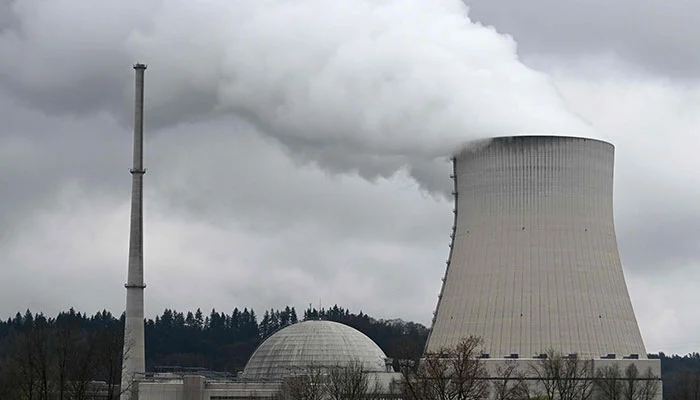Germany, on Saturday, is to shut down its last three nuclear reactors, which for the country’s Green Party, is a long-held dream come true.
At the end of March, Germany’s Environment Minister Steffi Lemke of the Green Party put an end to the dispute that has kept the country in suspense for years:
She said: “The risks of nuclear power are ulti-mately uncontrollable; that’s why the nuclear phase-out makes our country safer and avoids more nuclear waste.”
Nuclear power extended to April 15 Last year, the government found itself once again tangled in a spat over nuclear power after the extension of the plants to April 15, 2023, due to the Russian invasion of Ukraine.
The coalition government agreed to stick to Germany’s nuclear phase-out, which was decided under Chancellor Angela Merkel in 2011. Accord-ingly, the last nuclear power plants were to close at the end of 2022.
The Russian invasion of Ukraine changed eve-rything because Russian gas stockpiles in Germany halted and the government feared an energy shortage. Chancellor Olaf Scholz finally decided to extend the operating period of the power stations until April 15, 2023.
A decades-long dispute Few disputes have po-larized people, especially in former West Germany, for as many decades as the one over nuclear power. On June 17, 1961, a German nuclear power plant supplied electricity to the grid for the first time, at Kahl in Bavaria.
Some 22,596 days and plenty of heated debate later, the last three German nuclear power plants still in operation will finally be shut down on April 15.
Altogether, 19 nuclear power plant units supplied up to a third of the country’s electricity, though the last time this happened was about 20 years ago. In the 1970s and 1980s in West Germany, before German unification, opposition to nuclear power brought hundreds of thousands of mostly young people out onto the streets. Then in 1986, the Cher-nobyl disaster in the then-Soviet Union appeared to confirm warnings about the dangers of nuclear power. But the various governing parties – the con-servative Christian Democrats (CDU), the SPD, and the FDP – stood firmly behind the use of nuclear power for many decades.—APP










